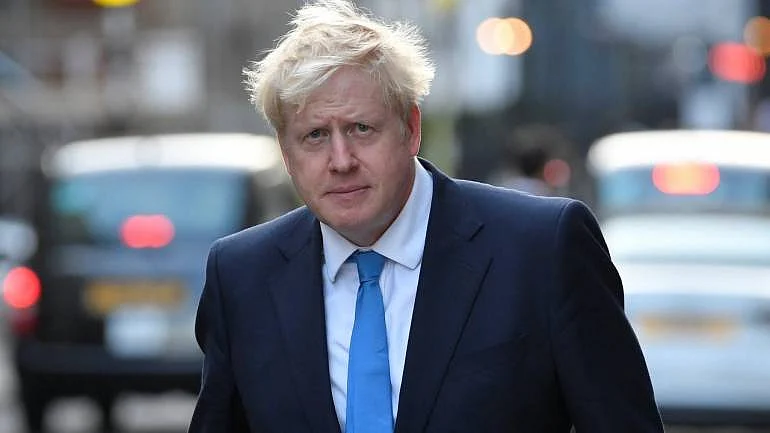Brexit dangles on a proverbial thread
Johnson needs support of at least 320 MPs to proceed to Brexit. But the ruling Conservative Party has no more than 287 MPs. He also needs support of several opposition MPs besides his own 23 rebels

Britain’s departure from the membership of the European Union (EU), mandated by its people in a referendum held in 2016, dangles on a proverbial thread.
In a first Saturday sitting of the House of Commons since during the Falklands War in 1982, British MPs will, on October 19, debate and decide on a Withdrawal Agreement arrived at between the government of Prime Minister Boris Johnson and the European Commission (EC, the administrative arm of the EU) on Thursday. The outcome is too close to call.
With a maximum of 640 potential attendees - including the speaker who doesn’t normally cast a ballot one way or the other - Johnson needs the support of at least 320 MPs to ratify his deal and thereby proceed to Brexit.
His being a minority administration, the ruling Conservative party possesses no more than 287 MPs. He, therefore, requires the 23 lawmakers who he expelled after they rebelled against him to oppose a no-deal Brexit and at least 10 from the ranks of the main opposition Labour party to endorse him to enable the motion to pass.
Nicholas Soames, grandson of the victorious Second World War British prime minister, Sir Winston Churchill, who was one of the Conservative rebels, indicated to BBC he is reconciled to the latest agreement; as is Sir Oliver Letwin, who was a key minister in the David Cameron cabinet. It appears a majority among the mutineers may do likewise, but crucially not all.
Labour MPs representing constituencies that opted to leave in the plebiscite are under pressure to fall in line with their electorates’ sentiments. There are an estimated 19 such legislators; but of whom only five voted in favour of Johnson’s predecessor Theresa May’s Withdrawal Agreement the third time it was introduced in the Commons in March.
Given the significantly increased impatience among Britons to bring the three and a half year Brexit saga to a termination, this number could rise to Johnson’s advantage.
Critically, though, the parliamentary ally of the Conservatives, the Northern Irish Democratic Unionist Party, emphatically reiterated it will reject the deal. Indeed, it has been imploring MPs in the hard-line European Research Group (ERG) in the Conservative party to do the same. This means 10 votes are lost to Johnson, more if any in the ERG break rank.
Most among Labour’s 242 MPs are likely to obey its three-line whip. All of the Scottish National Party’s 35 MPs and Liberal Democrats’ 19 MPs are expected to oppose the deal; as well as an overwhelming number if not all among 18 other independents and four from Welsh nationalist Plaid Cymru.
A straw poll carried out by BBC predicted 317 votes for Johnson and 322 against. The Financial Times’ tally calculated 318 for and 321 against. Sky News: 316 for, 323 against. The Times put it as 286 ayes, 297 nos and 56 undecided. What is certain is either way the difference in numbers will be wafer thin.
On Thursday, the president of the EC Jean-Claude Juncker threw a lifeline to Johnson by ruling out an extension to the Brexit deadline of October 31. He said in answer to a question: "If we have a deal, we have a deal and there is no need for prolongation."
This persuaded wavering British MPs to seriously consider voting in favour of the Withdrawal Agreement. Johnson is obliged under a law passed by the House of Commons last month to apply for a three month extension, if the Commons does not endorse his deal and there is, consequently, a no-deal scenario. But if the EU refuses such a request, the default position is a no-deal.
However, German Chancellor Angela Merkel reportedly told EU leaders during private talks in Brussels on Thursday a postponement of Brexit was unavoidable if British MPs voted down the deal. This was after the EU summit unanimously backed the new agreement. The EU Parliament will consider the matter next week after the Commons has expressed its opinion on it.
Johnson himself remained “very confident” MPs will back his deal. He intensified a charm offensive with expelled Conservatives, no-deal leaning Brexiteers (one of who, Ian Duncan-Smith, a former Conservative leader, did not sound too happy with some of the elements in the agreement) and Labour MPs from leave areas.
Labour’s shadow chancellor of the exchequer, John McDonnell, warned there would be “consequences” if his party’s MPs voted for Johnson’s deal, without elaborating what these would be. John Mann, an MP who declared he will defy the Labour whip, indicated 9-10 of his colleagues may do so. Lisa Nandy, a half Indian origin MP from the north-west of England, has a pro-leave constituency and is therefore confronting a dilemma.
If opponents of Johnson’s agreement succeed in defeating him in the Commons, they could then press for a separate vote next week on offering a second referendum to the British people, which would be a choice between Johnson’s deal and remain. Polls proved to be unreliable in 2016. But for whatever little it’s worth, public opinion for several months now have tilted towards a status quo.
Follow us on: Facebook, Twitter, Google News, Instagram
Join our official telegram channel (@nationalherald) and stay updated with the latest headlines